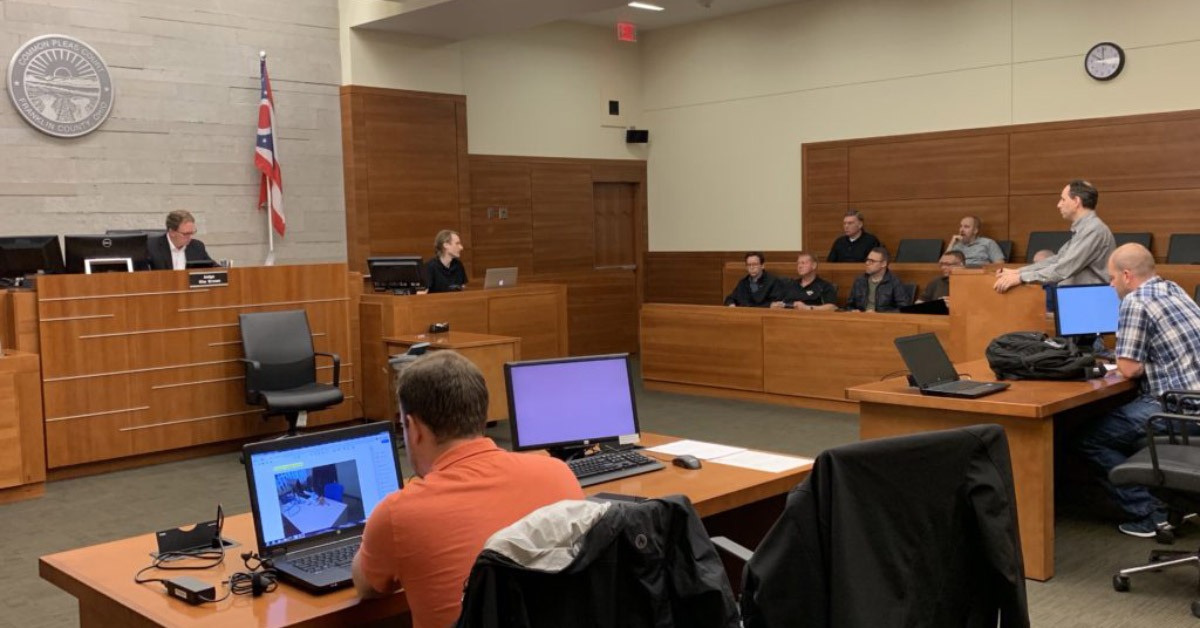Strategic practice using effective courtroom testimony techniques will make you a better expert witness. You have valuable information to provide and your ability to fairly and confidently communicate that information in court is essential. These are skills that can be learned and practiced. Just going to court and hoping for the best is not a strategy – it is the absence of a strategy and places you at risk of not fully communicating your evidence and being taken advantage of by counsel.
An expert witness is a person with expertise in a particular field that exceeds the knowledge level of the trier of fact and who applies that expertise in a legal setting. Becoming an expert witness in any field is a significant accomplishment. It means that through your education, training, and experience you have gained knowledge in a particular field of endeavor that is superior to that of the trier of fact. It also means that you are in a position to contribute to the search for the truth, which should be the goal of a criminal prosecution and civil litigation.
From both a criminal and civil trial perspective, it is essential that an expert be able to communicate that vital information in a clear, concise, and compelling manner so as to maximize its value. The ability to do that is rarely innate and is something that can be learned and practiced.
The initial focus for law enforcement agencies, forensic service providers, private firms, and experts themselves is to secure the necessary education, training, and experience to be categorized as an expert in a particular field. This is the arduous and lengthy first step to becoming an expert witness. The second step is to be able to effectively communicate that expertise in a courtroom when pressure is brought to bear on the soundness of your knowledge, methodology, and conclusions. The skills required for effective courtroom testimony are different from the technical and analytical skills learned in your area of expertise. Put succinctly, it is one thing to write an expert report; quite another to defend it under cross examination.
Courtroom testimony has its own specialized education, knowledge, and skills, and is often the area where experts lack adequate training and experience. Being an accomplished expert has little bearing on your competence as an expert witness. You must be able to handle considerable pressure, respond to difficult technical questions, and deal with attacks on your integrity and the quality of your work. If an expert witness does not perform well in the witness stand, then the court will not get the full benefit of the expert’s knowledge. An expert witness must be able to competently address the following topics in direct and cross examination:
- Qualifications (a thorough, professional CV is essential)
- How and when you became involved in the case
- What information you were given prior to and during your work on the case
- Exhibits you were given and created
- Locations attended, if applicable
- Examination and analysis of exhibits, other objects, and scenes
- Results achieved, opinions formed, and conclusions reached
How do you achieve a level of competence that will allow you to perform well in the courtroom and be a proper emissary for the important evidence you have to give? Study the subject of courtroom testimony and practice!
Courtroom testimony training should cover fundamental topics such as the following:
- Preparation for court
- Drafting expert reports and CVs
- Trial procedure
- Getting qualified as an expert witness in court
- The role of the expert witness
- Expert witness bias
- Effective communication during direct examination
- Using visual evidence to assist in conveying key testimony
- Understanding cross examination strategies and communicating effectively under pressure
- The enhanced role of an expert witness when there is an opposing expert
Practical training is also an essential component of being an expert witness. There is no better training for the rigours of courtroom testimony than moot court training. Whether as part of formal training or done within your agency, it is important to get experience being asked questions and having to answer them under pressure. You need to experience the stress of being a witness as well as receive a critical assessment of your skills. You don’t benefit from easy questions (though they are a nice warm up!) – the tough questions that challenge bias, subject matter knowledge, methodology, and conclusions will prepare you better. This will help you to develop courtroom familiarity so that when you are in court, the questioning you encounter is not something you are experiencing for the first time. Consider enlisting colleagues and local counsel to take you through your paces and challenge you. Videotape your performance. Seek honest feedback. You will be thankful for all of this preparatory training when you step in the witness stand.
